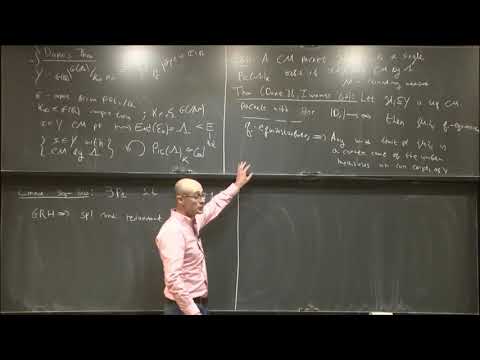Abstract
A celebrated theorem of Duke states that Picard/Galois orbits of CM points on a complex modular curve equidistribute in the limit when the absolute value of the discriminant goes to infinity. The equidistribution of Picard and Galois orbits of special points in products of modular curves was conjectured by Michel and Venkatesh and as part of the equidistribution strengthening of the André-Oort conjecture. I will explain the proof of a recent theorem making progress towards this conjecture.
Currently, this problem does not seem to be amenable to methods of automorphic forms even assuming GRH. Nevertheless, assuming a splitting condition at two primes the joining rigidity theorem of Einsiedler and Lindenstrauss applies. As a result the obstacle to proving equidistribution is the potential concentration of mass on graphs of Hecke correspondences and translates thereof. I will present a method to discard this possibility using a geometric expansion of a relative trace, description of the relative orbital integrals in terms of integral ideals and a sieve argument.
